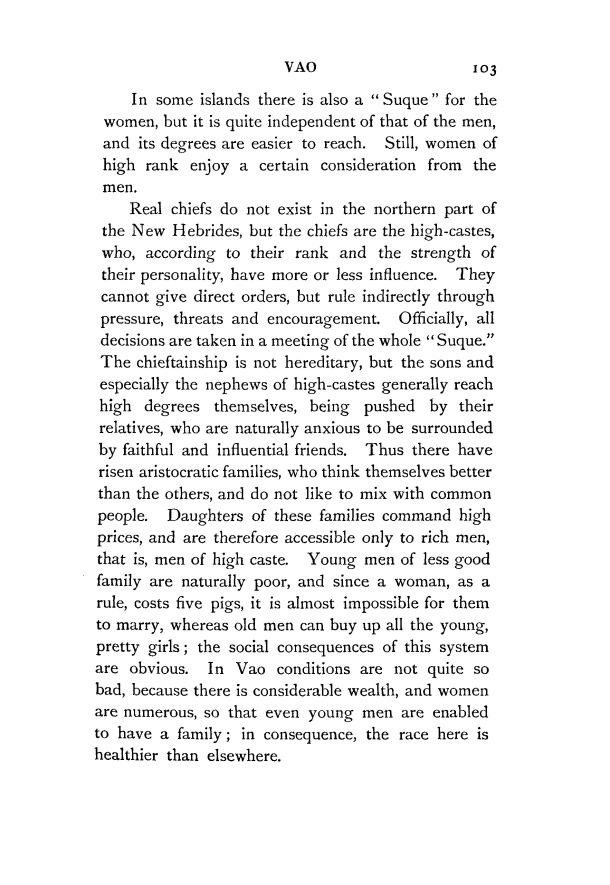|
|  [Note: this transcription was produced by an automatic OCR engine]
VAC 103
In some islands there is also a “ Suque” for the
women, but it is quite independent of that of the men,
and its degrees are easier to reach. Still, women of
high rank enjoy a certain consideration from the
men.
Real chiefs do not exist in the northern part of
the New Hebrides, but the chiefs are the high-castes,
who, according to their rank and the strength of
their personality, have more or less influence. They
cannot give direct orders, but rule indirectly through
pressure, threats and encouragement. Officially, all
decisions are taken in a meeting of the whole “ Suque.”
The chieftainship is not hereditary, but the sons and
especially the nephews of high—castes generally reach
high degrees themselves, being pushed by their
relatives, who are naturally anxious to be surrounded
by faithful and influential friends. Thus there have
risen aristocratic families, who think themselves better
than the others, and do not like to mix with common
people. Daughters of these families command high
prices, and are therefore accessible only to rich men,
that is, men of high caste. YOUNG men of less good
family are naturally poor, and since a woman, as a
rule, costs five pigs, it is almost impossible for them
to marry, Whereas old men can buy up all the YOUNG,
pretty girls; the social consequences of this system
are obvious. In Vao conditions are not quite so
bad, because there is considerable wealth, and women
are numerous, so that even YOUNG men are enabled
to have a family; in consequence, the race here is
healthier than elsewhere.
|